RIYADH: As the tourism industry prospers in Saudi Arabia, local travel agents are turning to artificial intelligence to help their clients plan dream vacations, offer seamless journeys, and create highly personalized visitor experiences.
As part of its Vision 2030 economic reform agenda, Saudi Arabia has raised its ambition to attract 150 million tourists a year by the end of the decade. Thanks to an array of AI solutions, this new target could be well within grasp.
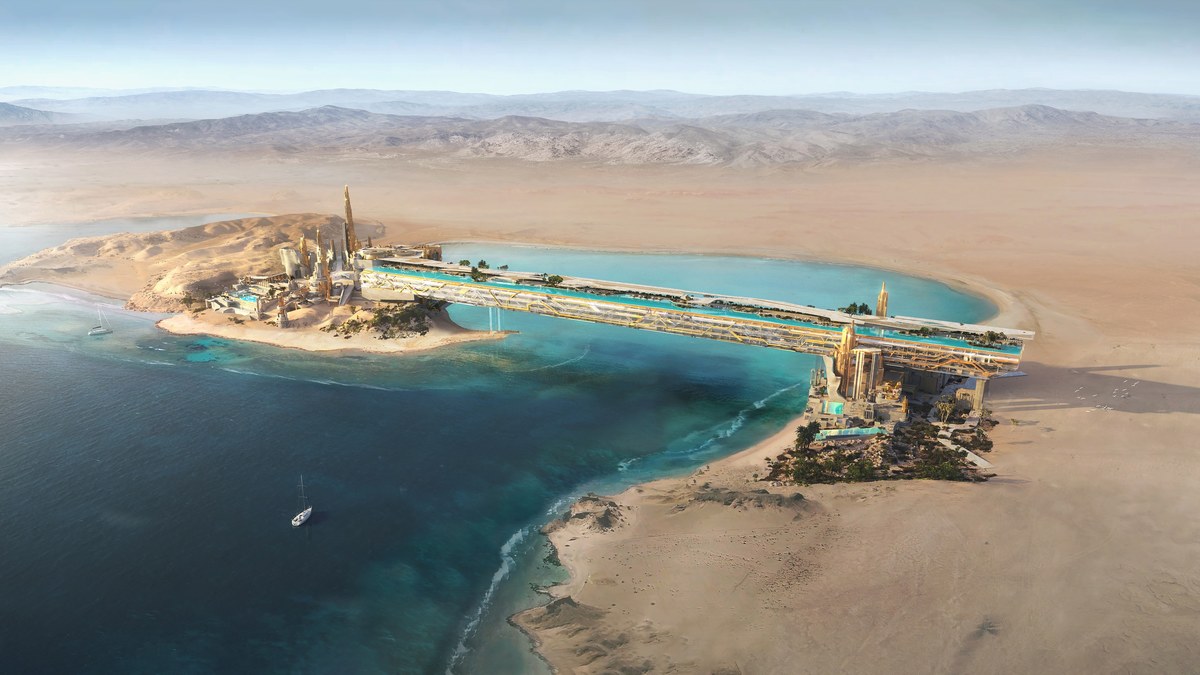
An artistic impression of the resort planned by the Saudi giga-project NEOM and hospitality firm Equinox Hotels on the coast of the Gulf of Aqaba will feature 15 hotels and over 2,500 residences in 12 locations. (NEOM image)
NEOM, Saudi Arabia’s $500 billion mega-city taking shape on the Kingdom’s northwest coast, will feature a range of innovative tourism experiences, using AI for personalized services, transport and hospitality.
Meanwhile, at the UNESCO World Heritage sites of AlUla and Diriyah, AI-powered augmented reality technology will offer visitors a program of interactive tours through the Kingdom’s historical sites.
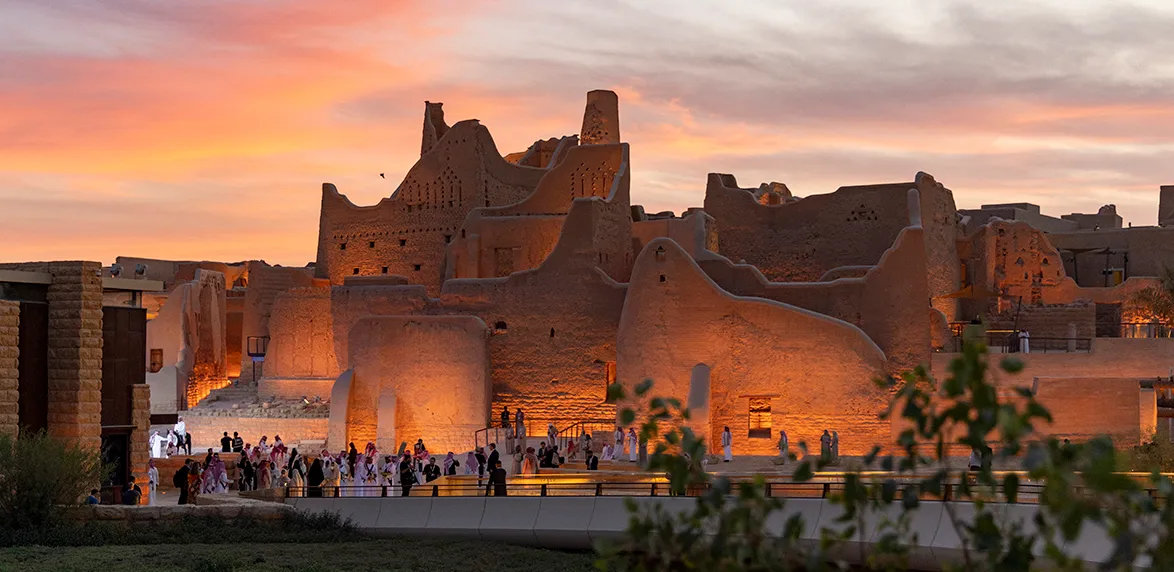
Diriyah, the birthplace of the Kingdom of Saudi Arabia, offers visitors a program of interactive tours. (DGDA photo)
“The Kingdom is making significant progress in building its local AI talent through ambitious initiatives, collaborating with global AI players, such as Artefact, to upskill its young talent on AI,” Rahul Arya, CEO of tech consultancy Artefact MENA, told Arab News.
“The Saudi Authority for Data and Artificial Intelligence’s major initiatives and events, such as the GAIN Summit, are also putting the Kingdom on the global AI map and positioning it as an AI pioneer in the region.”
The latest edition of the Global AI Summit, also known as GAIN, took place in Riyadh between Sept. 10 and 12, offering a platform for experts, academics, corporates and policymakers to advance the discussion on AI.
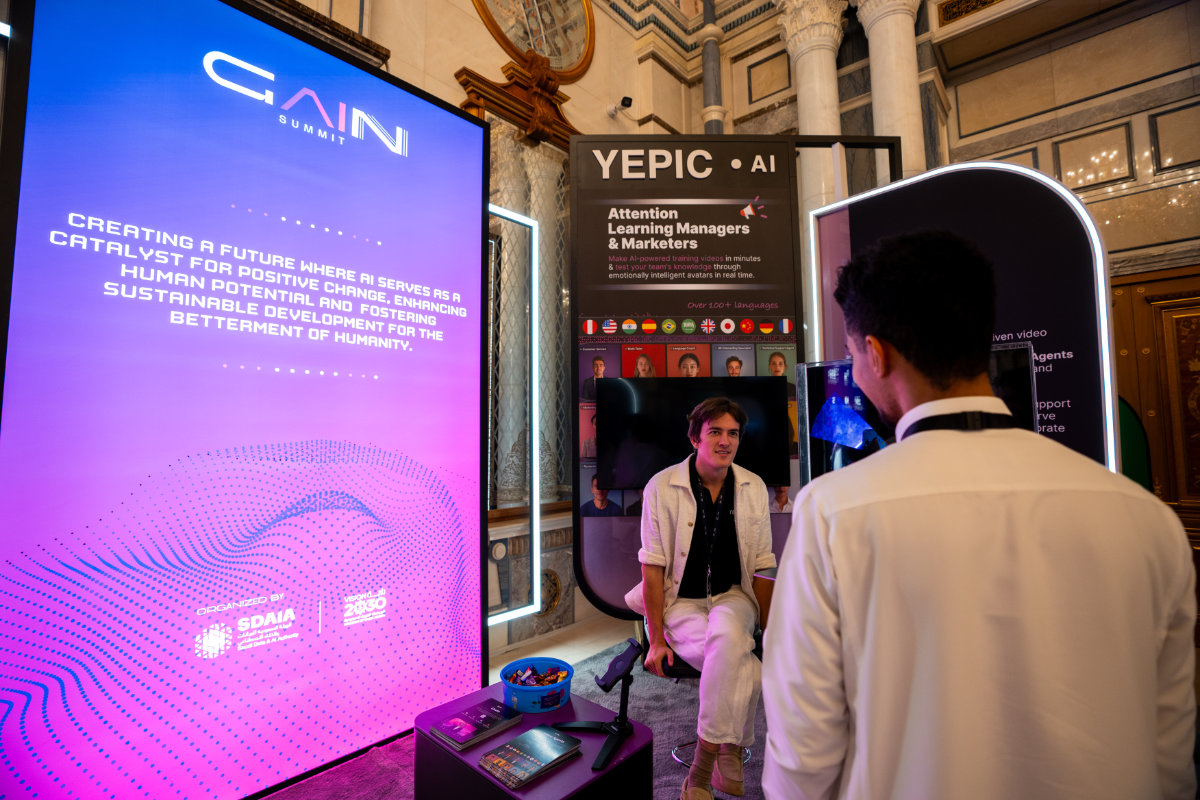
During the 3-day GAIN Summit in Riyadh, AI’s transformative potential for the tourism sector was among the main topics discussed by experts, academics, corporates and policymakers. (AN photo by Abdulrahman Bin Shalhoub)
Oussama Ahmad, Artefact’s global lead on travel and tourism, attended the summit, held at the King Abdulaziz International Conference Center.
“As an AI practitioner, I am both invigorated and captivated by Saudi Arabia’s pioneering role in AI, as evidenced by its global leadership in government AI strategy,” he told Arab News.
“It’s imperative for me to be at GAIN to witness the latest AI advancements and success stories in the Kingdom and to exchange insights with thought leaders and experts in the domain.”
During the event, Ahmad moderated a panel discussion on AI’s transformative potential for the tourism sector.

“This session was part of a ‘first-of-a-kind’ event on AI for Tourism — a collaboration between the Ministry of Tourism, Saudi Tourism Authority, SDAIA and Artefact,” he said.
“Additionally, I had the pleasure to sign a memorandum of understanding between Artefact and STA to drive the development of AI solutions to promote Saudi Arabia as a leading tourism destination and to elevate its visitors’ experience.”
Ahmad said that AI solutions can enhance the marketing of the Kingdom as a tourist destination by addressing specific perception barriers with targeted messages delivered through the right channels.
“Solutions created by artificial intelligence include monitoring visitors’ experiences, addressing pain points and capitalizing on moments of delight, as an outstanding visitor experience is crucial for encouraging repeat visits and referrals,” he said.
“Additionally, AI can help identify new global events and attractions to be hosted by the Kingdom, plan for participant capacity at these events, and measure their return on investment.”
Ahmad highlighted that the Saudi Tourism Authority has developed AI-powered recommendation systems, predictive analytics for visitors and their spending in order to elevate visitor experience and optimize capacity planning.
“Riyadh Air has established its data and AI infrastructure on-cloud to develop AI applications aimed at differentiating its guest experience and enhancing its commercial and operational performance,” he said.
Ahmad highlighted the effectiveness and accuracy of many AI applications, especially those based on generative AI, which rely on a detailed understanding of language and its dialectical nuances.
“This deep understanding can make all the difference in the model’s analysis of text or speech input, extraction of insights, and the accuracy of the model’s responses to user queries,” he said, underscoring the need for such models to be trained in Arabic dialects.
“AI models, and more specifically large language models, should be trained on the native language (both text and speech) and fine-tuned with the various dialects present in the Kingdom and its priority source markets of visitors.
“Moreover, Saudi Arabia has specific cultural aspects related to social values, customs, education, and communication … Developing AI solutions and innovations in the Kingdom comes with challenges, but the Kingdom is working to bridge the gap.”
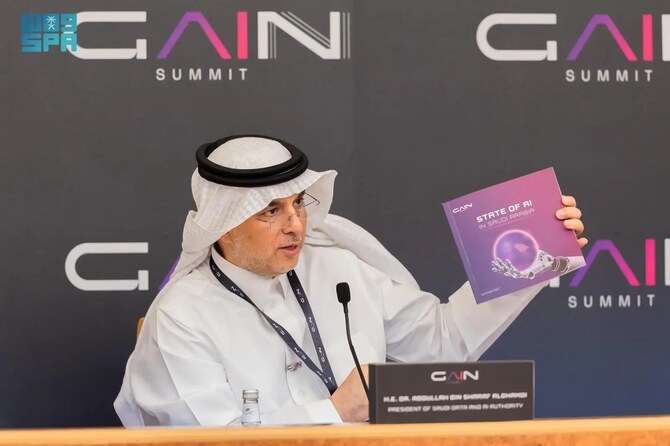
Abdullah bin Sharaf Al-Ghamdi, president of the Saudi Data and Artificial Intelligence Authority, unveiling the “State of AI in Saudi Arabia” report outlining the Kingdom’s advancements from 2019 to 2023. (SPA)
For Saudi Arabia’s tourism sector and other emerging industries to reap the benefits AI has to offer, Ahmad said the Kingdom should focus on data collection, the entry of cloud providers, and on supporting local tech talent.
“First, AI applications require a vast amount of clean historical data, typically in the range of hundreds of thousands to millions of data rows,” he said.
“However, the emerging Saudi tourism sector currently faces limitations in data availability and quality. To address this, organizations in Saudi Arabia should focus on extensive data collection through first-party data strategies and partnerships for second and third-party data exchange.
“In the meantime, AI models can be developed as proof of concepts and later fine-tuned as data sources are enriched.”
“Second, many organizations in the Kingdom have legacy technology infrastructure that cannot support the deployment and productionalization of large-scale AI applications.
“However, the entry of cloud providers into the Kingdom through local data centers has begun to alleviate this challenge, particularly as cloud service providers make their most advanced AI services available in these data centers.
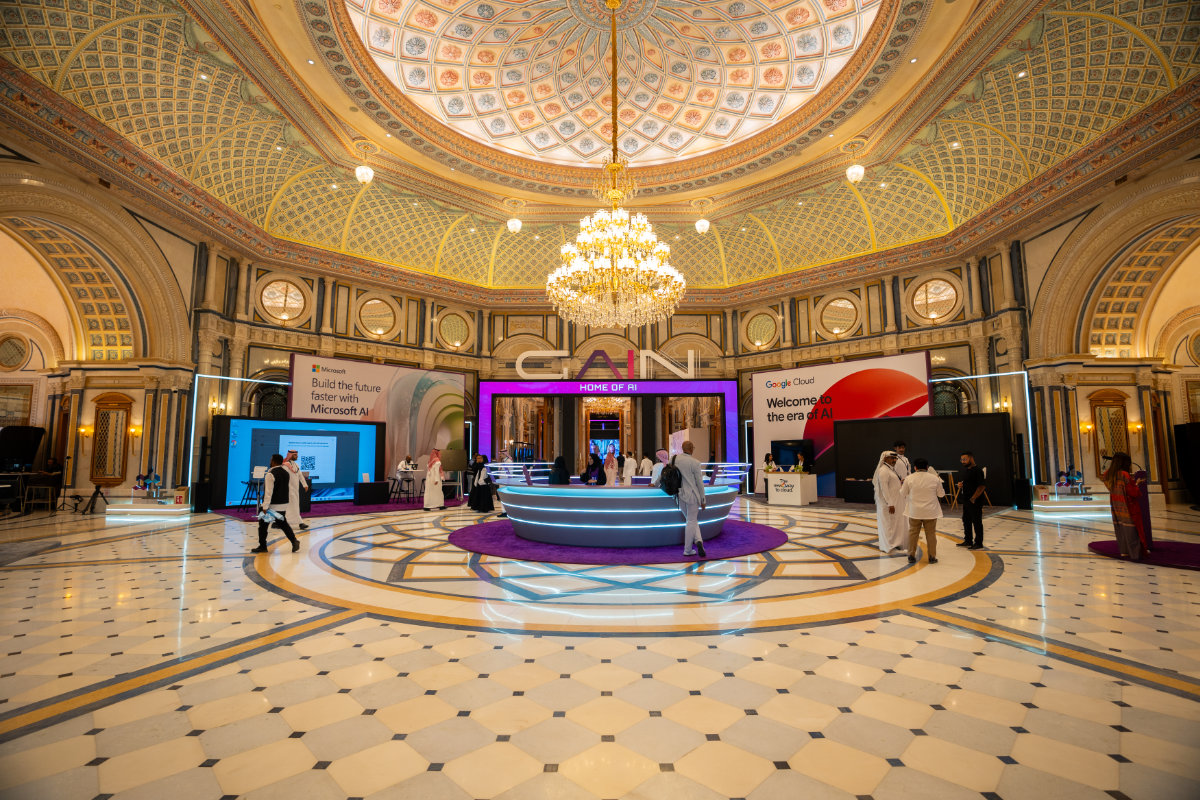
Cloud providers are part of a set of requirements needed for the tourism sector to reap the benefits AI has to offer. (AN photo by Abdulrahman Bin Shalhoub)
“The third challenge is the undersupply of AI talent in the Saudi market, which has led to limited AI innovation locally. To address this, local organizations are tapping into global AI talent pools.”
High-quality data and robust governance are key pillars for developing effective AI models that generate accurate results. That is why the Saudi Authority for Data and Artificial Intelligence has created the National Data Management Office and the National Data Index.
“To address this, SDAIA has devised the NDMO and NDI frameworks, which regulate and standardize data governance and management across the Kingdom, thus accelerating AI development and leading to value creation from data insights,” Ahmad said.
“Additionally, the Kingdom has set clear standards for residency of AI applications based on the classification of data sets required for those applications. This has fueled a healthy competition among cloud providers to build compliant data centers in the Kingdom, offering a comprehensive range of their AI applications and services.”
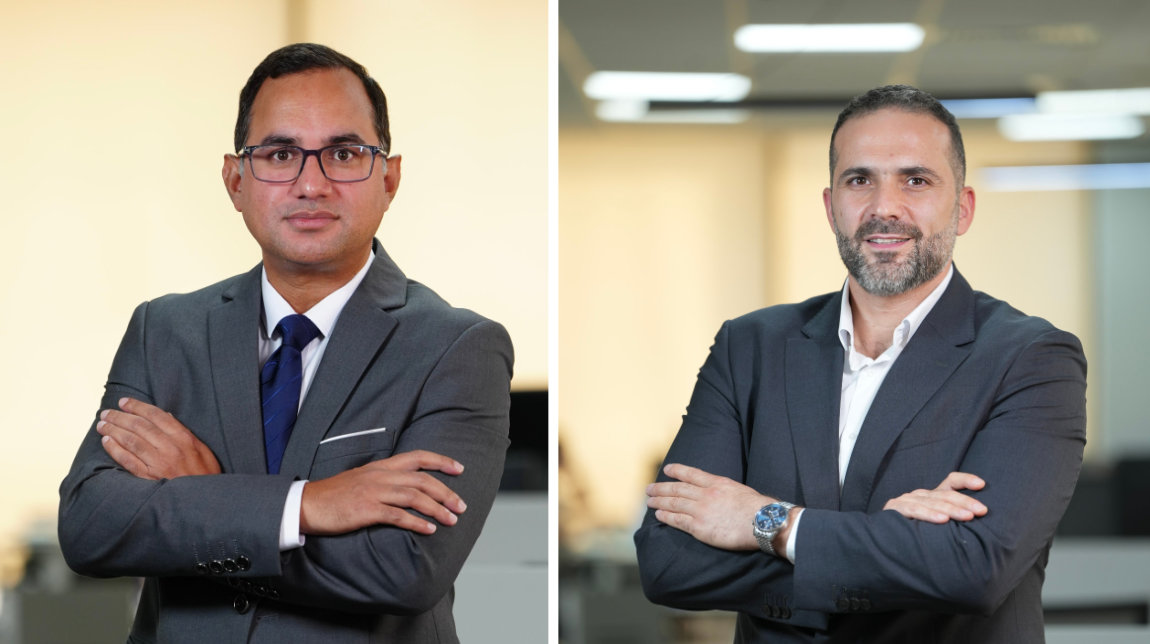
Rahul Arya (left), CEO of tech consultancy Artefact MENA, and Oussama Ahmad, Artefact’s global lead on travel and tourism. (Supplied)
Most recently, the Kingdom pioneered AI regulations by defining a set of “AI Ethics Principles” in collaboration with the EU and in line with its AI Act.
“This framework ensures that AI development is ethical, transparent, and compliant with personal data protection standards,” Ahmad said.
If the Kingdom is able to overcome challenges such as data availability, technological infrastructure, and talent scarcity, Ahmad believes Saudi Arabia will make significant strides in AI development and adoption.
“The successful implementation of AI solutions, tailored to local languages, cultural nuances, and compliant with regulatory frameworks, is crucial for unlocking the full potential of AI in driving the tourism sector.”




























